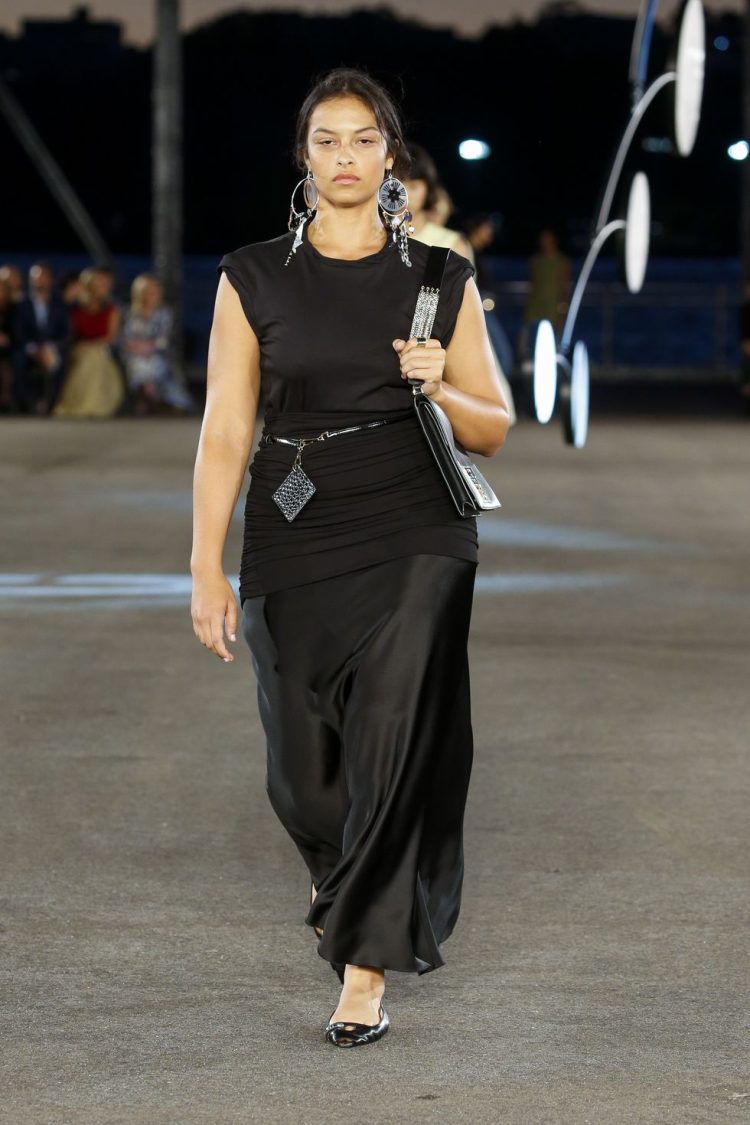: A Comparative Analysis of Nigeria and Saudi Arabia: Unveiling the Rich Tapestry of Diversity

Nigeria and Saudi Arabia, two nations with distinctive cultural, historical, and geographical backgrounds, stand as testament to the diversity that enriches our global landscape. While Nigeria, located in West Africa, boasts a vibrant mix of ethnicities, languages, and traditions, Saudi Arabia, situated on the Arabian Peninsula, reflects a society deeply rooted in Islamic heritage. This article aims to delve into the multifaceted dimensions of these two nations, exploring their histories, cultures, economies, and social landscapes.
Table of Contents
ToggleHistorical Perspectives:
Nigeria’s history is a mosaic of civilizations, from the ancient Nok culture to the powerful empires of Kanem-Bornu and the Benin Kingdom. European colonialism left an indelible mark, shaping the modern Nigerian state. Independence in 1960 heralded a new era, marked by political turbulence and the struggle for stability. On the other hand, Saudi Arabia’s history is deeply entwined with Islam. The birthplace of Prophet Muhammad, it became the epicenter of the Islamic Caliphates, evolving into the modern Kingdom of Saudi Arabia in 1932 under the leadership of Abdulaziz Ibn Saud.
Cultural Diversity:
Nigeria’s cultural tapestry is woven from over 250 ethnic groups, each contributing unique traditions, languages, and art forms. Yoruba, Igbo, and Hausa-Fulani are major ethnic groups, and their cultural expressions manifest in diverse ways, from colorful festivals to intricate beadwork and textiles. In contrast, Saudi Arabia, predominantly an Islamic society, observes a more homogenous culture, strongly influenced by Bedouin traditions. Islamic art, calligraphy, and architecture are integral components, with the annual Hajj pilgrimage to Mecca being a cornerstone of Saudi cultural identity.
Religious Landscape:
Religion plays a pivotal role in both nations, albeit in different ways. Nigeria is religiously diverse, with Islam and Christianity coexisting alongside indigenous belief systems. The northern regions are predominantly Muslim, while the south is predominantly Christian. This diversity, at times, has led to tensions, but it also showcases the resilience of a nation navigating pluralism. In Saudi Arabia, Islam is the cornerstone of societal norms and governance. The strict interpretation of Sunni Islam influences legal, social, and cultural aspects, with the holy cities of Mecca and Medina holding immense spiritual significance.
Economic Profiles:
Economically, both Nigeria and Saudi Arabia possess significant natural resources but exhibit different economic structures. Nigeria, often called the “Giant of Africa,” relies heavily on oil exports, contributing substantially to its GDP. However, this dependence has made the economy vulnerable to oil price fluctuations. In contrast, Saudi Arabia, the world’s largest oil exporter, has undertaken economic diversification initiatives, such as Vision 2030, to reduce reliance on oil revenue. This ambitious plan aims to transform the Saudi economy, promoting sectors like tourism, technology, and entertainment.
Social Dynamics:
Social dynamics in Nigeria and Saudi Arabia mirror the complexities of their histories and cultures. Nigeria, with its diverse ethnic groups, faces challenges related to ethnic and religious tensions, but efforts towards national unity persist. Social issues like poverty, healthcare disparities, and education gaps are areas of ongoing concern. In Saudi Arabia, social norms are heavily influenced by conservative interpretations of Islam. Recent reforms, driven by Vision 2030, seek to modernize societal norms, empower women, and enhance overall social well-being.
Women’s Roles:
The status of women in both nations reflects the ongoing global dialogue on gender equality. In Nigeria, despite progress, gender disparities persist in education, employment, and political representation. In Saudi Arabia, the lifting of the driving ban for women in 2018 marked a significant milestone, indicative of the Kingdom’s efforts to enhance women’s roles in society. Vision 2030 underscores the importance of empowering Saudi women, encouraging their participation in various sectors.
Challenges and Opportunities:
Both Nigeria and Saudi Arabia grapple with challenges unique to their contexts. Nigeria faces issues like corruption, political instability, and economic inequality, hindering its progress. In contrast, Saudi Arabia navigates the delicate balance between modernization and preserving cultural and religious values. However, both nations also possess vast potential and opportunities. Nigeria’s youthful population presents a demographic dividend if effectively harnessed, while Saudi Arabia’s strategic initiatives aim to position it as a regional economic and cultural hub.
Conclusion:
In the intricate tapestry of global diversity, Nigeria and Saudi Arabia emerge as distinctive threads, weaving narratives of resilience, growth, and identity. Despite their differences, these nations share common aspirations for progress, development, and a brighter future. Understanding and appreciating the rich complexities of Nigeria and Saudi Arabia fosters a broader perspective on the global community, reminding us that diversity is the essence of our shared human experience.
1. What are the main cultural differences between Nigeria and Saudi Arabia?
Nigeria boasts a rich cultural diversity with over 250 ethnic groups contributing to a vibrant mix of traditions, languages, and art forms. Saudi Arabia, on the other hand, reflects a more homogenous culture deeply rooted in Islamic heritage, with a strong influence of Bedouin traditions and Islamic art.
2. How does the religious landscape differ between Nigeria and Saudi Arabia?
Nigeria is religiously diverse, with Islam, Christianity, and indigenous belief systems coexisting. The northern regions are predominantly Muslim, while the south is predominantly Christian. In Saudi Arabia, Islam is the cornerstone of societal norms and governance, with a predominantly Sunni Muslim population.
3. What is the economic structure of Nigeria and Saudi Arabia?
Nigeria heavily relies on oil exports, contributing significantly to its GDP, but this dependence makes its economy vulnerable to oil price fluctuations. Saudi Arabia, as the world’s largest oil exporter, has undertaken economic diversification initiatives like Vision 2030 to reduce reliance on oil revenue and promote sectors like tourism and technology.
4. How do the social dynamics differ between the two nations?
Nigeria, with its diverse ethnic groups, faces challenges related to ethnic and religious tensions, along with issues like poverty, healthcare disparities, and education gaps. Saudi Arabia, influenced by conservative interpretations of Islam, has undergone recent reforms, including Vision 2030, to modernize societal norms, empower women, and enhance overall social well-being.
5. What are the main challenges faced by Nigeria and Saudi Arabia?
Nigeria grapples with challenges such as corruption, political instability, and economic inequality. Saudi Arabia navigates the delicate balance between modernization and preserving cultural and religious values. Both nations, however, are working towards addressing these challenges and unlocking their vast potentials.
6. How do women’s roles differ in Nigeria and Saudi Arabia?
In Nigeria, gender disparities persist in education, employment, and political representation, while Saudi Arabia has undergone significant changes, including lifting the driving ban for women in 2018. Vision 2030 in Saudi Arabia aims to empower women and increase their participation in various sectors.
7. What initiatives are in place for economic development in Nigeria and Saudi Arabia?
Nigeria focuses on diversifying its economy beyond oil, exploring sectors like agriculture and technology. Saudi Arabia’s Vision 2030 is a comprehensive plan to transform the economy, promote non-oil sectors, and position the country as a regional economic and cultural hub.
8. How do these nations address their youth populations?
Nigeria’s youthful population presents a demographic dividend if effectively harnessed for economic growth. Saudi Arabia’s Vision 2030 recognizes the importance of engaging the youth and providing them with opportunities for skill development and meaningful contributions to society.
9. What is the historical background of Nigeria and Saudi Arabia?
Nigeria’s history is a mosaic of ancient civilizations and the impact of European colonialism, leading to independence in 1960. Saudi Arabia has a deep-rooted history intertwined with Islam, evolving from the Islamic Caliphates to the modern Kingdom in 1932 under Abdulaziz Ibn Saud.
10. How are these nations working towards a brighter future?
Both Nigeria and Saudi Arabia are actively addressing their challenges through various initiatives. Nigeria is focusing on good governance and economic diversification, while Saudi Arabia’s Vision 2030 aims for comprehensive transformation, embracing modernization and sustainable development for a brighter future.






